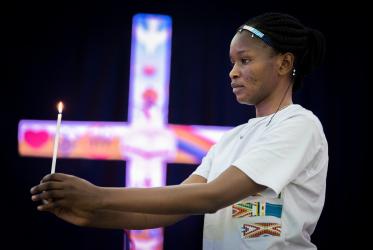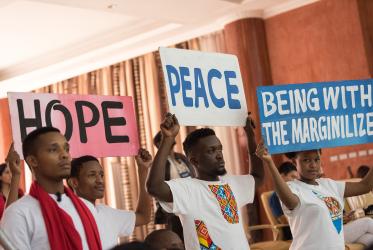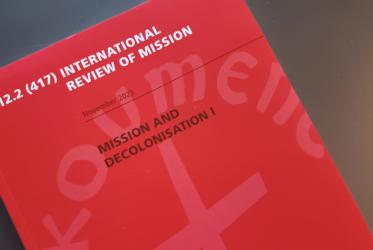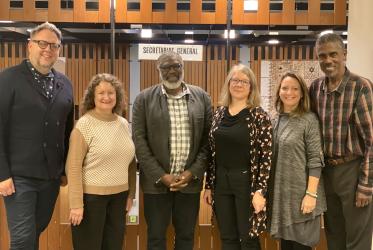By Robert Bartram*
Blantyre Synod is the component part of the Church of Central Africa Presbyterian (CCAP) for the southern region of Malawi. The World Council of Churches (WCC) welcomed the Blantyre Synod to the ecumenical fellowship in July at the WCC Central Committee meeting. Rev. Alex Benson Maulana, general secretary of the Blantyre Synod, spoke to WCC news about why the synod has joined WCC.
Why have you joined the WCC?
Maulana: We value unity, fellowship, and we value learning from others and contributing. We thought we should be part of the World Council of Churches, this big family of churches. In fact whilst we might not have been that active since, at the time the WCC was created in 1948, one of the conferences took place at Chilema Ecumenical Training and Conference Centre in Malawi, a joint centre between CCAP Blantyre Synod and Anglican Diocese of Upper Shire.
Why didn’t Blantyre join before now?
Maulana: At one point we were active as part of the Christian Council of Malawi (CCM). Blantyre Synod was one of the active churches of the WCC and membership was therefore through CCM. Because of that, it never came into our minds to be members of the WCC. When I came into office, I felt there was a need to reactivate our presence and so we decided to apply for membership to the WCC and cease to be active under a different umbrella.
Could you give a short description of the history and background of your church?
Maulana: Blantyre Mission emerged from the Church of Scotland in 1876 and takes its name from the birthplace of Dr Livingstone. It started with 30 members and it has grown to 1.8 million members, with about 1,400 worshipping stations. They are involved in different ministries: youth ministry, women’s ministry, hospital chaplaincy, prison chaplaincy, food security, livelihoods, education, health ministry, church and society (governance), music ministry.
What are your main objectives as a church and what are the challenges?
Maulana: There are so many challenges. Malawi is experiencing illiteracy, illiteracy is very high and the church is trying to contribute in one way or another. That is why we have a full-fledged education department. Secondly, the church is also involved in promoting healthy activities. We run health programmes and we have hospitals that we run as a church. The government hospitals that provide health services free of charge are struggling because at the moment they don’t receive enough funding and many hospitals are running short of medicines.
But the overriding point is the poverty that the people are experiencing. The church is making interventions with at least some of the skills that can bring in more resources for basic needs. With the coming of HIV/AIDS, it has left a number of orphans and we cannot just leave this to government alone. So we have devised some programmes for the orphans so that they can at least enjoy life. These are some of the challenges that we face in Malawi. Fortunately enough for Malawi, we have not gone through big problems politically compared to other neighbouring countries in Africa.
What is your opinion of the Pilgrimage of Justice and Peace?
Maulana: To make sure that justice is brought to the people. We have what we call a church and society department – governance. And that ensures there is justice and we need to make sure that everyone in Malawi has that access to justice. Sometimes people are put in prison without trial and we try to ensure that people get the right to justice that they need. They should not be on remand for long or forgotten sometimes.
When people go with empty stomachs there is also injustice. So we make sure that the government plays its part and the church plays its side. That is why we have food security programmes and that is part of justice. When we talk of peace, people should not have fear within their own locality, their own countries. We also run programmes – together with government sometimes – to ensure that people should live happily within their own country. We also make sure we lobby for WCC as a family to be involved in working towards the end of war conflicts in countries like Mozambique where there is war recurrence. Human trafficking is one of the serious problems which is becoming common in many countries including Malawi. We together with WCC as a family should fight against this dehumanizing and unjust behaviour.
Church of Central Africa Presbyterian Blantyre Synod
WCC Pilgrimage of Justice and Peace
*Robert Bartram is a communications specialist with 20 years experience drawn from a range of government, inter-government and media organizations, based in Geneva.






